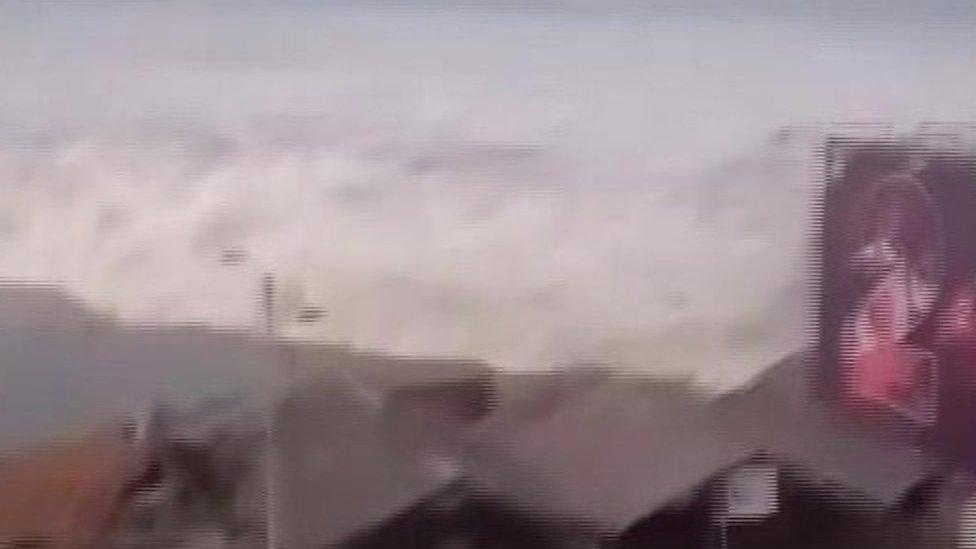Indonesia tsunami and quake: Clashes as Palu grows desperate for aid
- Published
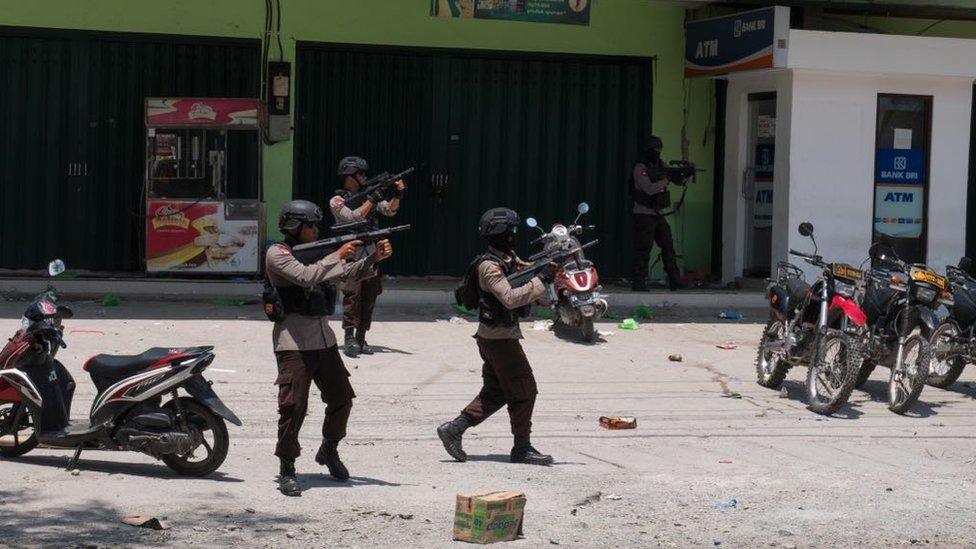
Police fired warning shots as people tried to raid a shop for basic supplies
People in Palu, Indonesia, are growing increasingly desperate for aid after a quake and tsunami hit the town.
Supplies of water, food and fuel are scarce and with roads damaged it is proving hard to bring more in, or reach the more remote areas.
The BBC's Jonathan Head, who is in the town, saw police firing warning shots and tear gas at crowds trying to take items from a small shop.
At least 844 people are confirmed to have been killed by Friday's disaster.
Officials say the final figure could be in the thousands.
Among those killed are 34 Indonesian students whose bodies were found under a church buried by a mudslide.
There are fears some survivors may still be trapped under the rubble of that and other buildings.

A volley of shots and tear gas
Jonathan Head, BBC News, Palu
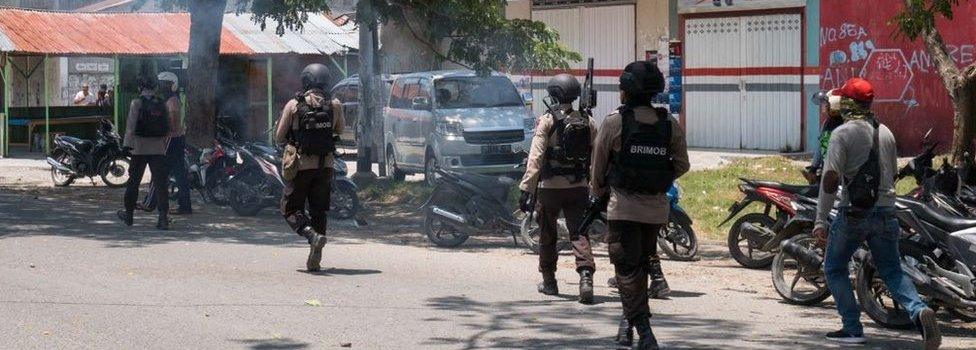
Everyone we meet in Palu is focused on trying to get basic goods for their families. All normal services in the town have broken down; there's little running water, power, food or drinking water. People are desperate.
We saw one group of armed police guarding a shop, being pressed by local people to let them in.
Suddenly the police shouted, warning everyone to back off, followed by volleys of shots fired in the air and tear gas. Some of the men threw stones at the police; for a moment it seemed it might escalate.
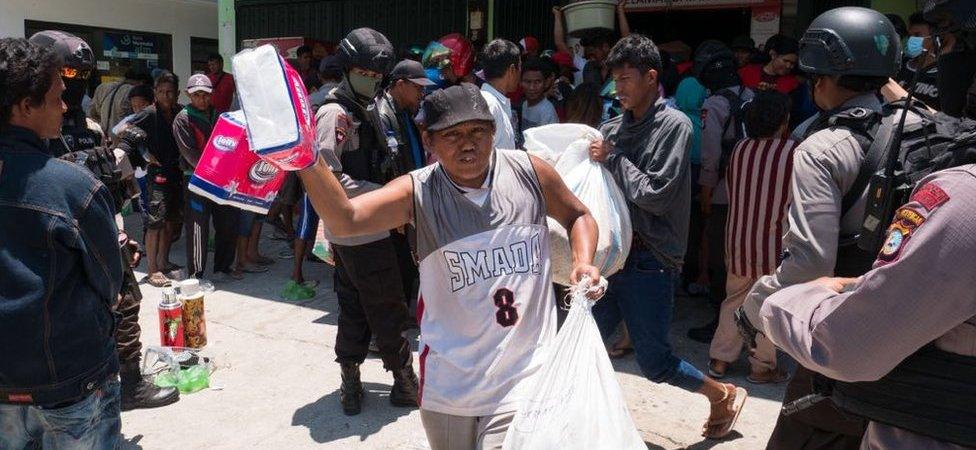
Yet an hour later the police backed down and let the crowd in. The atmosphere was transformed, from anger to jubilation as people came running down the street clutching shopping bags.
The police tried to stop people taking non-food items - some were made to empty the sacks bulging with commandeered produce, and hand over plastic toys and toiletries.
One officer wearily told me it was his responsibility to protect the shop - but what could he do when people needed so much.

The bodies of the 34 students were found in Sigi Biromaru, just outside Palu, on Tuesday.
They were among a group of 86 students reported missing from a Bible camp in the Jonooge Church Training Centre. The whereabouts of the other 52 students are not known.
Tsunami survivor: "I was hugging my wife, but when the wave came... I immediately lost her"
Aid workers told the BBC they were still in the process of retrieving the bodies, and were being hampered by mud.
"The mud conditions in that area are terrible, we have to walk about 1.5 hours to reach [the mudslide area], that makes it very difficult," Ridwan Sobri, a spokesperson for the Indonesian Red Cross told the BBC.
Mr Sobri said the identities and ages of the students could not yet be confirmed.
'Unimaginable trauma'
Rescuers are also still hunting for survivors in the ruins of a four storey hotel in the town.
An estimated 50 people were inside the Hotel Roa Roa when it collapsed. About 12 people have been recovered - only three came out alive.
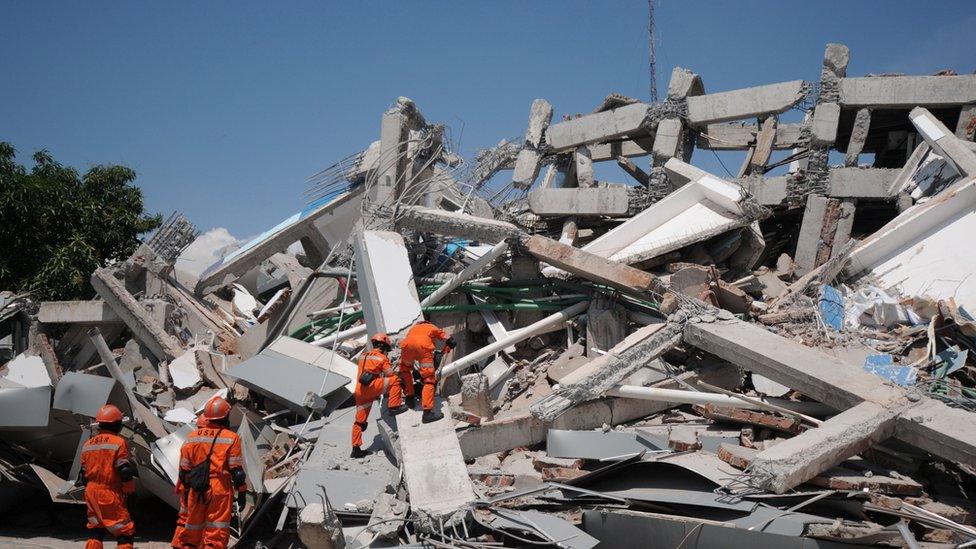
This is what's left of the Roa Roa hotel in Palu
"We have to be very careful so we don't risk hurting any survivors when we move the debris," the head of the rescue team, Agus Haryono, told Reuters.
Across Palu, blocked roads, a damaged airport and broken telecommunications have made it difficult to bring help into the affected area, and impossible to contact more remote regions.
With hospitals damaged, injured people have been treated in the open and at least one military field hospital has been set up.
The military has taken over the airport to fly aid in, and injured people and other evacuees out.
But for thousands of people wanting to get the first commercial flight out of Palu, the wait continues.
"I'd get a plane anywhere. I've been waiting for two days. Haven't eaten, barely had a drink," 44-year-old food vendor Wiwid told Reuters news agency.
Indonesia quake looter: "We need to eat"
The charity Save the Children says many of the children in Palu "will have experienced unimaginable trauma and distress".
"Losing their mother or father, and watching everything they have known washed away," said the charity's Tom Howells.
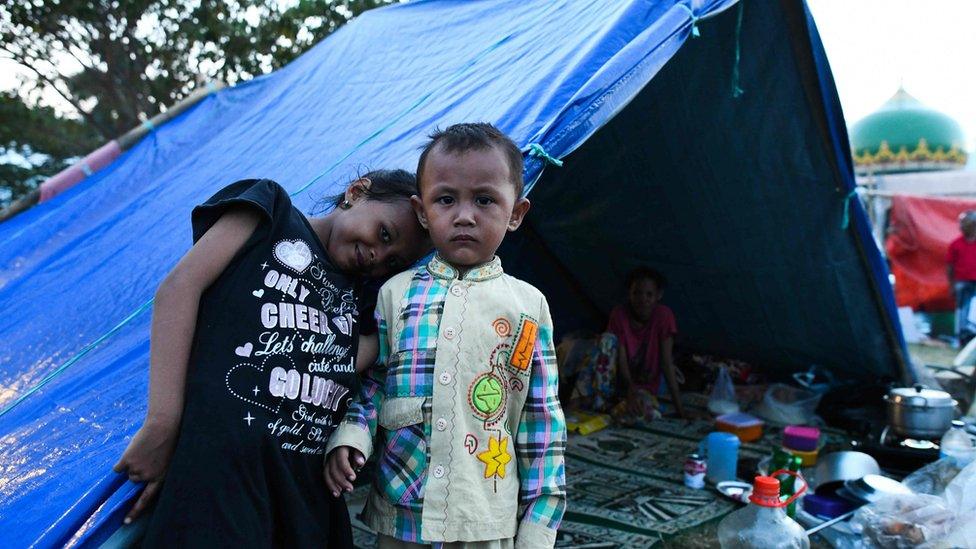
Children in front of a tent on a field of a mosque where they took refuge in Palu
Many people are having to sleep in makeshift shelters or on the street, with little access to food, medication or emotional support, added Mr Howells.
Across the city, mass graves are being dug, one of them to hold up to 300 bodies.
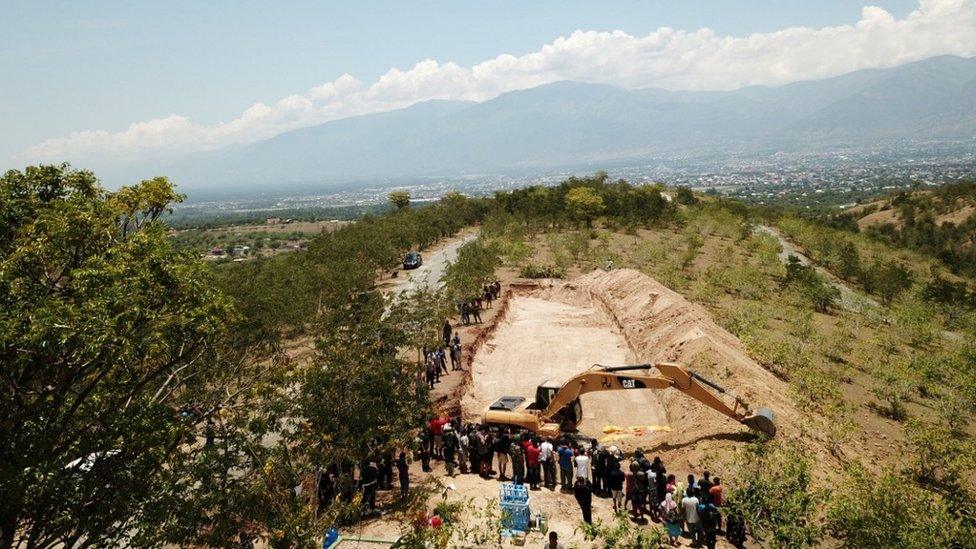
A mass grave in Palu
On the outskirts of Palu, bodies were brought for burial by lorries. At one mass grave which measured more than 50 metres (165ft), the smell of decomposition was said to be "overpowering".
'In the thousands'
The 7.5-magnitude quake occurred at a depth of 10km (6.2 miles) just off the central island of Sulawesi at 18:03 (10:03 GMT) on Friday, setting off a tsunami.
The earthquake was powerful but shallow and with more lateral than vertical movement, not typically the kind of tremor that sets off tsunamis.
Vice-President Jusuf Kalla has said the final death toll could be in the thousands while the Red Cross estimates that more than 1.6 million people have been affected.
- Published1 October 2018
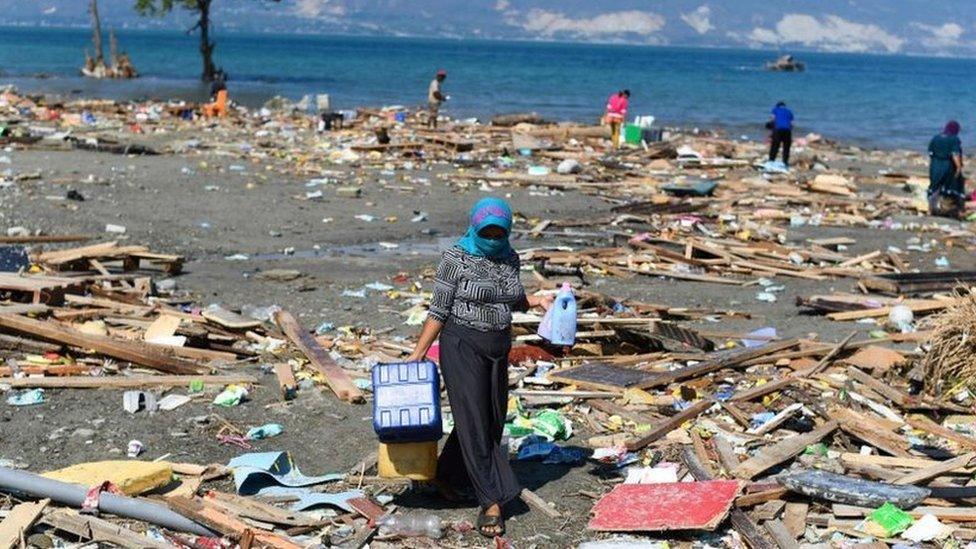
- Published2 October 2018
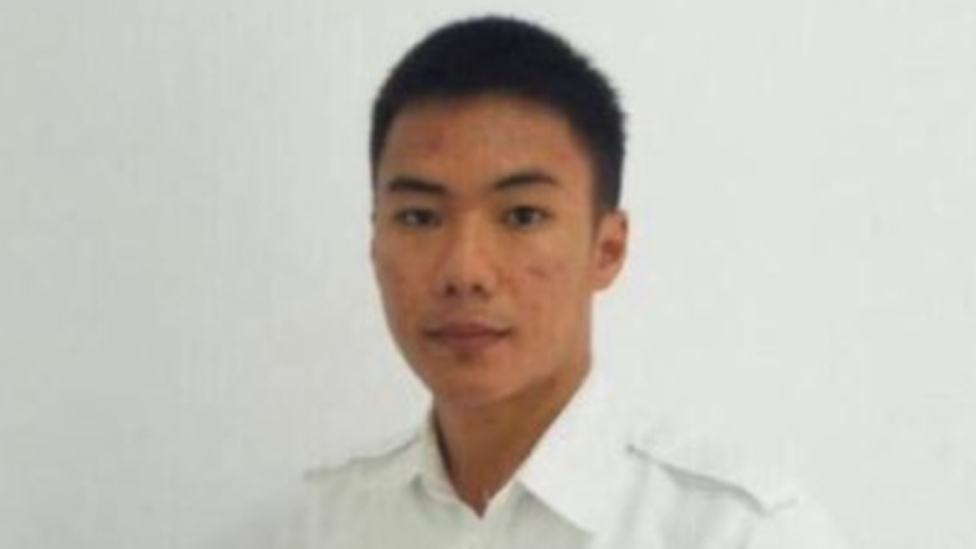
- Published1 October 2018
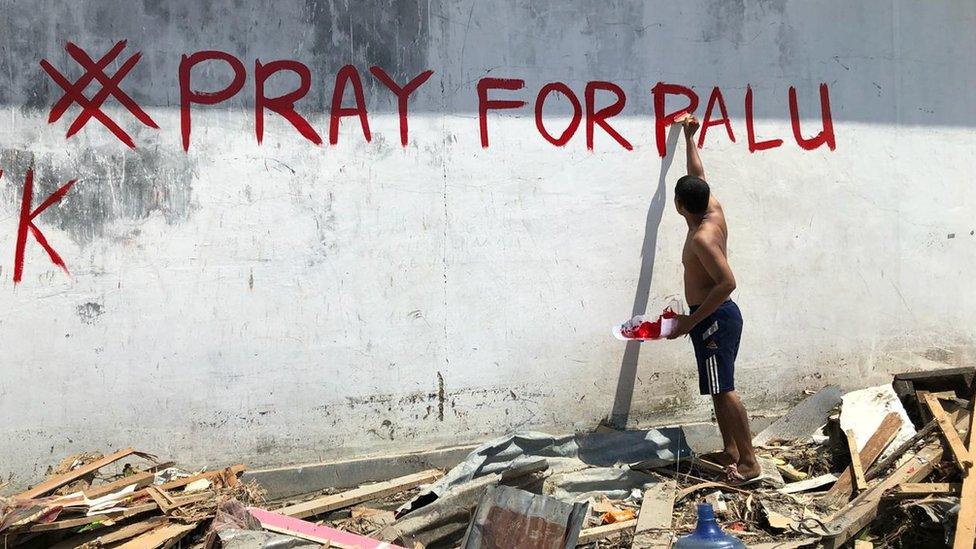
- Published1 October 2018
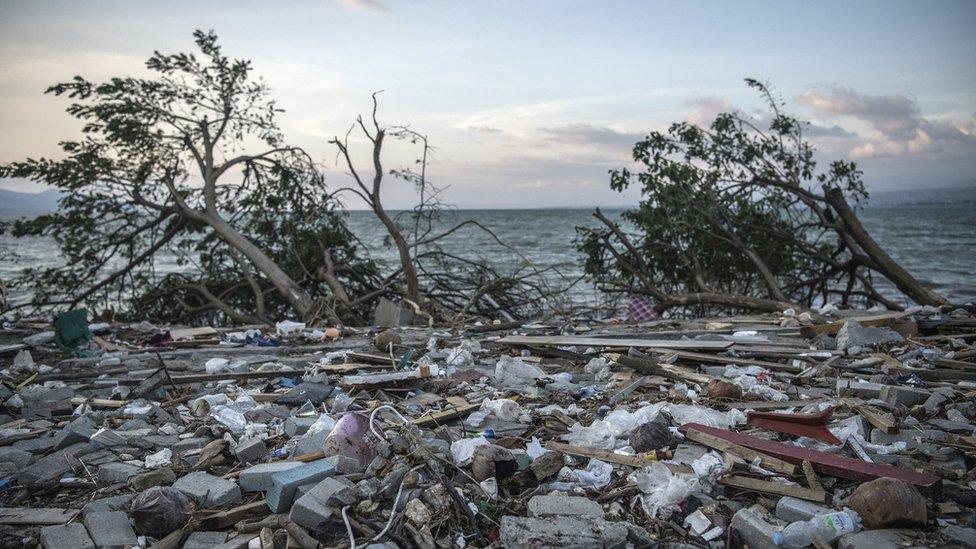
- Published29 September 2018
